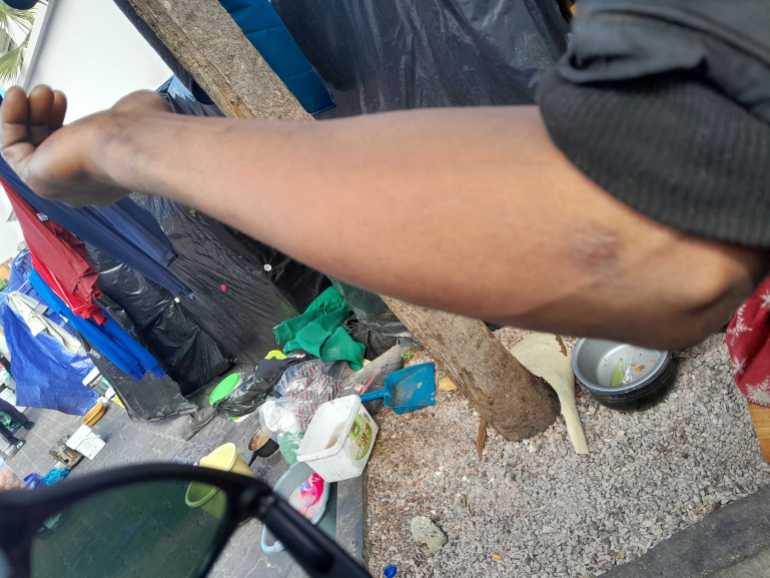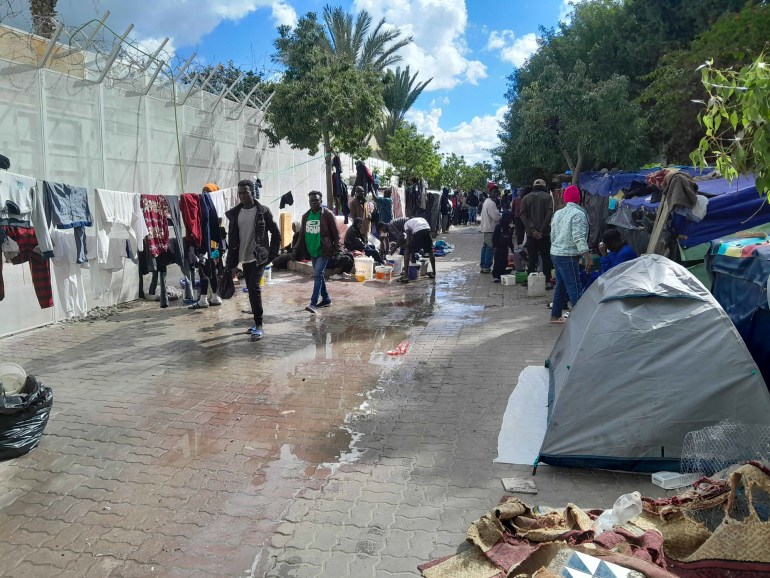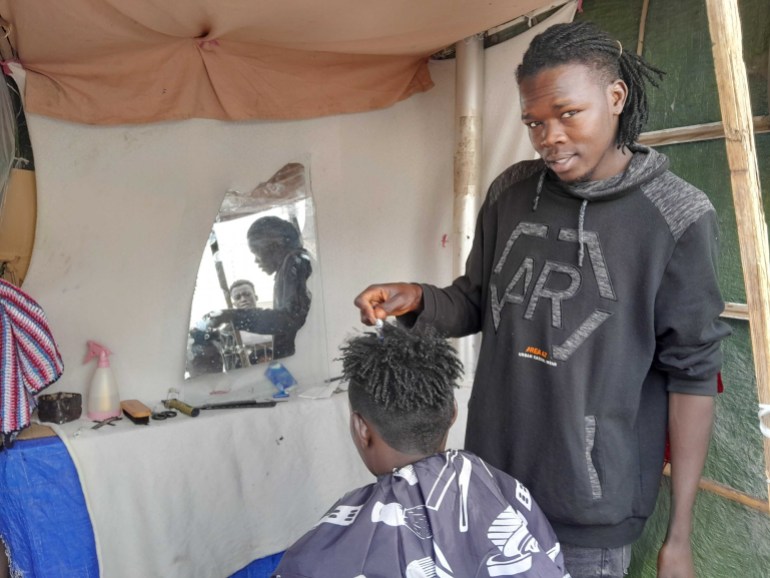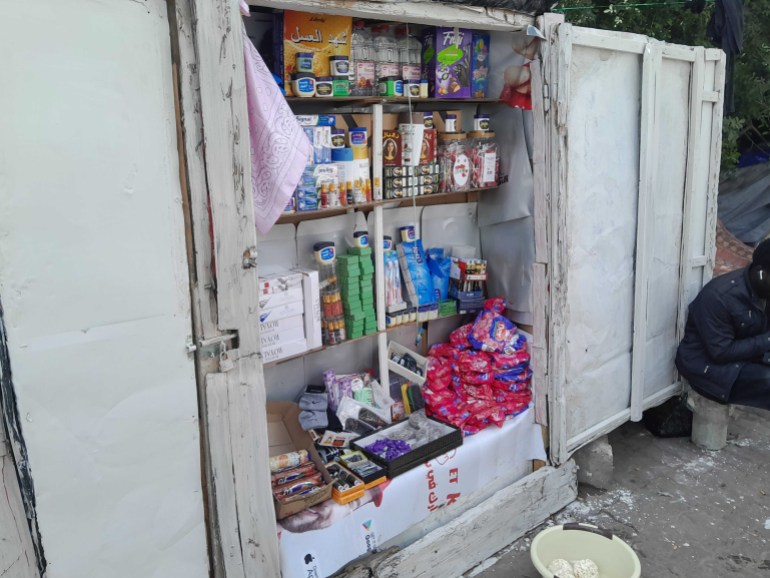Tunis, Tunisia – Information that an Italian court docket had blocked the nation’s vessels from returning refugees and migrants to Libya was welcomed by the tens of refugees and migrants camped in a crowded passage outdoors the Worldwide Group for Migration (IOM) in Tunis.
A lot of these outdoors the IOM that day had escaped from Libya and had first-hand data of the abuse that individuals face there.
Armed gangs and militias have ruled a lot of Libya because it emerged from the 2011 revolution that overthrew long-term dictator Muammar Gaddafi.
Because the militias’ affect has grown, so too has their management over profitable human trafficking networks, which have soared in quantity because the days when Gaddafi may fear Europe by threatening to ease his foot off Libya’s human pipeline to its coast.
These militias, reportedly together with Libya’s Europe-backed coastguard, now exert ruthless management over the commerce, with unprotected refugees and migrants crossing the nation from sub-Saharan Africa routinely intercepted and held hostage in a community of coastal prisons.
As soon as inside, many are tortured, with video of their savage ill-treatment despatched to distant households with calls for for ransom transmitted by smartphone.
The worth of securing Europe’s borders
“They torture me a lot,” 19-year-old Mohammed Lamin Kamara from Sierra Leone recalled, displaying the scars that ran throughout his arms and the branding mark that sat upon his arm.
“I keep in mind they flog us. They might hit me on my arms, my again,” he mentioned, describing how everybody within the 10 or so rooms at Warshefana, close to Tripoli, the place he was held can be subjected to day by day abuse by the guards.

“When they’re flogging you and the blood begins to return out, the ache you’re going to really feel is extraordinarily arduous,” he mentioned.
“They use cables, irons, simply to torture you,” he mentioned, happening to explain how they’d press burning steel or plastic in opposition to pores and skin to elicit essentially the most excessive response for his or her households at house.
“Some individuals go right into a coma, some individuals cross away. They take these our bodies and take them into the desert, simply to get cash.”
As Mohammed talked, a small crowd of equally aged males gathered round him. All knew of another person, of both gender, who had been raped at gunpoint.
Italy’s ruling
Earlier this month, Italy’s highest court docket upheld a ruling that Italian vessels may not return refugees rescued at sea to Libya, widening the gulf between the nation’s authorized system and political institution which, together with its European allies, appears intent on sustaining the Libyan militias’ funding in a bid to pressure irregular arrivals away from their shores.

In 2017, Italy and Libya signed a memorandum of understanding that was renewed robotically for the second time in February 2023.
Below the phrases of that settlement, Italy deliberate to pay some 10 million euros ($10.8m) final 12 months in direction of bolstering Libya’s maritime authorities.
As well as, the Italian authorities has gifted a number of search-and-rescue vessels to Libya, in addition to having educated the crews now routinely accused of abusing these they declare to be rescuing.
“The [court’s] judgement is vital in that it formally reiterates what many have been saying for years: that Libya shouldn’t be a spot of security, and refugees and migrants rescued within the central Mediterranean ought to by no means be disembarked there,” mentioned Matteo de Bellis, a researcher at Amnesty Worldwide’s Brussels workplace.

He defined that charities and rights teams had been conscious of the case because it made its manner via Italy’s courts for the previous few years.
“The Italian coastguard and authorities have lengthy recognized that returning migrants to Libya can be illegal, due to the situations there. As an alternative, they regarded for methods round these restrictions, akin to serving to fund, equip and prepare the Libyan coastguard.”
Each the European Union and Libya have additionally been charged by rights teams with helping the Libyan Coast Guard in declaring an expanded search-and-rescue zone, over which it exerts unchallenged management, limiting the necessity for European international locations to deal straight with the group.
Rule by militia
In line with a spokesperson for the IOM, there are 3,500 refugees being held within the official detention centres throughout western and jap Libya.

Extra are held within the unofficial centres, the majority of that are considered clustered across the capital in northwest Libya. Nevertheless, ascribing any sort of quantity to these detained is, by its nature, unattainable.
After an in depth research on the therapy of irregular migrants in Libya final 12 months, the United Nations cited a number of circumstances of torture and sexual slavery – against the law in opposition to humanity – as being comparatively commonplace within the community of detention centres.
Almost all of the survivors interviewed by the worldwide physique confirmed that that they had kept away from lodging complaints out of worry of reprisals.
“We have been about eight hours from Zawiya after they caught us,” 24-year-old Ismael Fafanah from Sierra Leone mentioned of his try to achieve Europe from northwest Libya final 12 months.
“The coastguard took us to the jail and mentioned I ought to name my mum and have her ship me cash, ” he mentioned, echoing Mohammed’s account of being tortured on movie in an try and pressure his household in Sierra Leone to pay his ransom.
In Ismael’s case, it was his brother who got here via, promoting his land for the $1,000 wanted for Ismael to realize his freedom and proceed to Tunisia.

“It’s my fault,” Ismael continues, stressing his willpower to repay his brother. “Nobody despatched me [to Libya]. I did it alone. I believed I may escape my nation and discover a higher life in Europe. I had at all times wished to ship a refund to my household and the individuals at house.”
For now, the refugees and migrants look ahead to spring to return and the seas to calm. None of these camped outdoors the IOM ever meant to change into stranded in North Africa.
Along with the torture they endured in Libya, many have already endured struggle zones, days on the highway, and extended starvation.
Almost all have dreamed of their new lives in Europe, of the cash they are going to earn and switch to the households they left behind.
Neither the risks of the ocean crossing, European coastguards, nor the distant risk of eventual deportation is prone to deter them.



